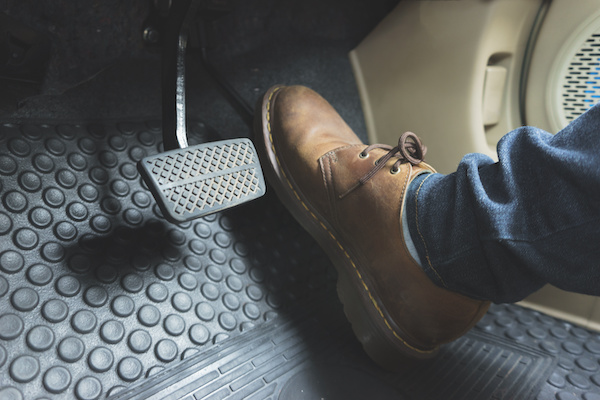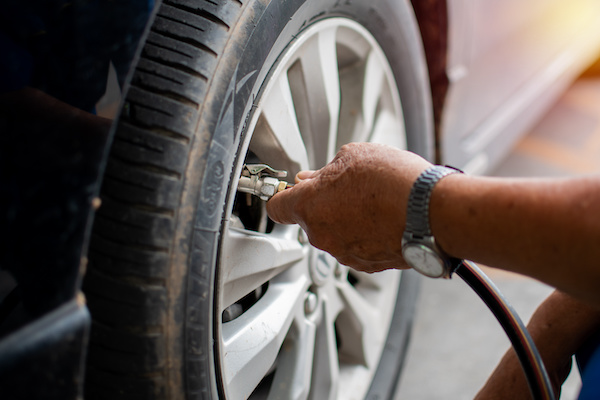Posted on 12/30/2022
.jpeg)
Diesel engines are designed to run for long periods with little or no maintenance. However, there are a few things you can do to keep your diesel engine running smoothly and efficiently. Here are some maintenance tips for diesel engines: Change The Engine Oil and Filter Regularly This will help remove any dirt or debris that could clog up the engine. Changing the oil and filter regularly is an important part of maintaining a diesel engine. Diesel oil breaks down faster than other types of oil, so it needs to be changed more frequently. Additionally, the filter catches any impurities in the oil, and over time it can become clogged. Regularly changing the oil and filter helps to keep the engine running smoothly and efficiently. Check The Air Filter Regularly and Replace It If It Is Dirty A dirty air filter can restrict airflow and reduce engine performance. Diesel engines are known for their durability and reliability. However, like all engines, they require regular maintenance to k ... read more
Posted on 11/30/2022

When you hear suspicious noises coming from your vehicle, you might be tempted to shrug it off. But if it is recurring, you should probably get it checked out. Automobiles should not make any unusual noises with normal operations. Such noises can indicate engine problems, brake problems, or more. In this blog, we will discuss the top 5 concerning car sounds and what they mean. Popping When Turning Vehicle This sound can indicate troubles with front- and all-wheel drive vehicles. This noise indicates an axle problem, specifically with constant velocity joints (CV joints). Any signs of snapping, clicking, or popping sound during a turn should signal you to have your drive axles checked. Chirping or Squealing From Under the Hood Engine squealing during acceleration can commonly be attributed to a worn or loose belt. You should bring your car to Bud’s Auto Repair and transmission to have your vehicle’s belts checked and potentially repl ... read more
Posted on 10/28/2022

Brakes are an essential part of your vehicle's control system. Therefore, an effective brake pedal should feel firm. However, your car should be checked immediately by your trusted mechanic to diagnose the issue if it feels spongy. Spongy brakes are not only frustrating but also dangerous. Here is what could make your brake system feel spongy. 1. Air in The Brake System Low brake fluid and the overheating caliper can lead to evaporation of the brake fluid and consequent air build-up in the brake system. Besides, when the bleeder valve is loose, your brake fluids can absorb moisture. The air bubble in the brake system can prevent the brake fluid from flowing correctly and compromise your brake system's hydraulic pressure. It would be best if you always flushed the brake fluid to remove air from the brake system. 2. Contaminated Brake Fluid Most drivers do not know what can contaminate the brake fluid. Debris and rust in the system, for one, is the primary contaminant. Rust ... read more
Posted on 9/28/2022

Today, most vehicles on the road are easier to manage than ever before. Even though most of your vehicle’s systems still require maintenance, it is not as frequent as it used to be. One of the easiest systems to maintain is the fuel system . Read on to learn more about the important parts of your vehicle’s fuel system and what you should do and not do to keep its components in good shape. Make Sure You’re Using the Right Fuel Treating your fuel system with care starts with fueling up with the right fuel. Most manufacturers list their fuel specifications for their vehicle models near the fill-up area. However, you can always refer to your owner’s manual. You should know the difference between the gas pump and diesel pump. Otherwise, a mix-up can cause catastrophic damage. Another thing worth noting is putting in the right octane level of gasoline. You should not cheap out and use a lower octane as it can cause engine knocking. Don’t Let Your Fuel L ... read more
Posted on 8/31/2022

Bud’s Auto Repair and Transmission are proud to offer nitrogen tire inflation services. If you’re like most people, you probably didn’t even know that you can fill your tires with nitrogen. In fact, nitrogen air in tires is growing in popularity in the automotive industry. Read on to learn more about the benefits of filling your tires with nitrogen. The benefit of nitrogen air-filled tires is all in the science of it all. Nitrogen molecules are larger than regular air molecules, so it is more difficult for them to leak. As a result, your tires are able to retain the proper pressure better. Lower maintenance - With the air in your tires leaking at a much slower rate, you can maintain a stable pressure over a longer period of time. Plus, nitrogen air can stay constant through extreme weather better. Considering that more than half of drivers don’t care to check their tire pressure regularly, nitrogen is the way to go if you want less maintena ... read more